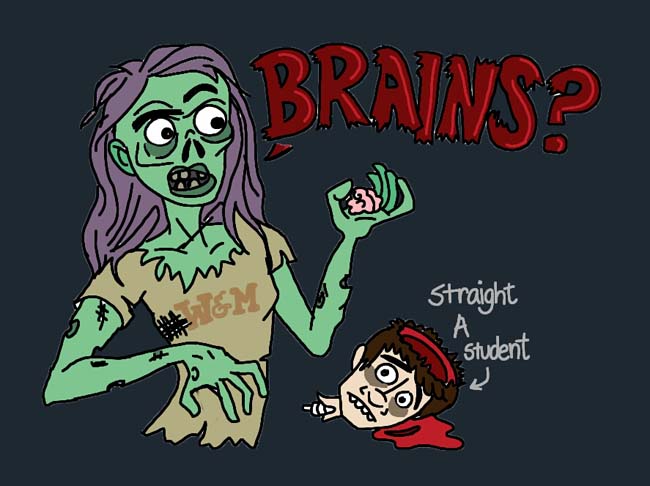The days leading up to a big exam can be stressful. As a student, I’ve spent countless hours before an exam trying to cram as much information into my head as possible. After taking the test, was all that hard work for nothing? Sure, maybe I got an A, but did I really learn anything? The emphasis has slowly but drastically shifted away from true learning toward simply pursuing that A.
It is not much of a stretch to say that this approach is one many students at the College of William and Mary have taken regarding their schoolwork. I believe there is a reason for this: It’s simply the way schools are set up. Success is measured by the grades students receive. The objective in their schoolwork, thus, is not truly to learn, but to receive that top grade. Students want success — if learning occurs along the way, it’s merely a bonus.
Even before enrolling at the College, a good part of our acceptance here is based on a number — our high school GPA. As such, it is not hard to see why we have come here with a grades-first mindset. But grades force students to neglect their own personal exploration, and instead make them abide by specific grading parameters, purely out of a fear of failure.
In theory, a student should be getting A’s if they are truly learning the material, but this is only partially true. Ask any A student a question that was on a test they took for a class only a semester ago, and the likelihood that they will answer correctly, in addition to actually being able to explain and elaborate on that answer, is rather slim.
The pressure to get good grades while in college remains in students’ minds because without those grades, life after college becomes very challenging. Many students who graduate from the College aim for more than just a bachelor’s degree. They apply to medical school, law school, and graduate programs. All of these programs rely heavily on GPA and grades to determine acceptance. It may be that we base success at the college level on grades because the programs that students will later pursue do the same. This makes sense. After all, grades paint a standardized picture of a person. But people are individuals; they are not the same, and cannot be standardized.
Students fail to focus on learning, and instead direct their efforts toward achieving an A because that is the way our school system is designed. I am not so bold as to propose another system entirely, but surely the current system could be improved. It is a system that praises memorization and regurgitation instead of true learning and mastery of a subject. Reforming the system might be a bit idealistic, but it’s the reason we come to college — for real self-exploration and learning, not just for a grade.
Email Gabriella Hafner at gmhafner@email.wm.edu.




































